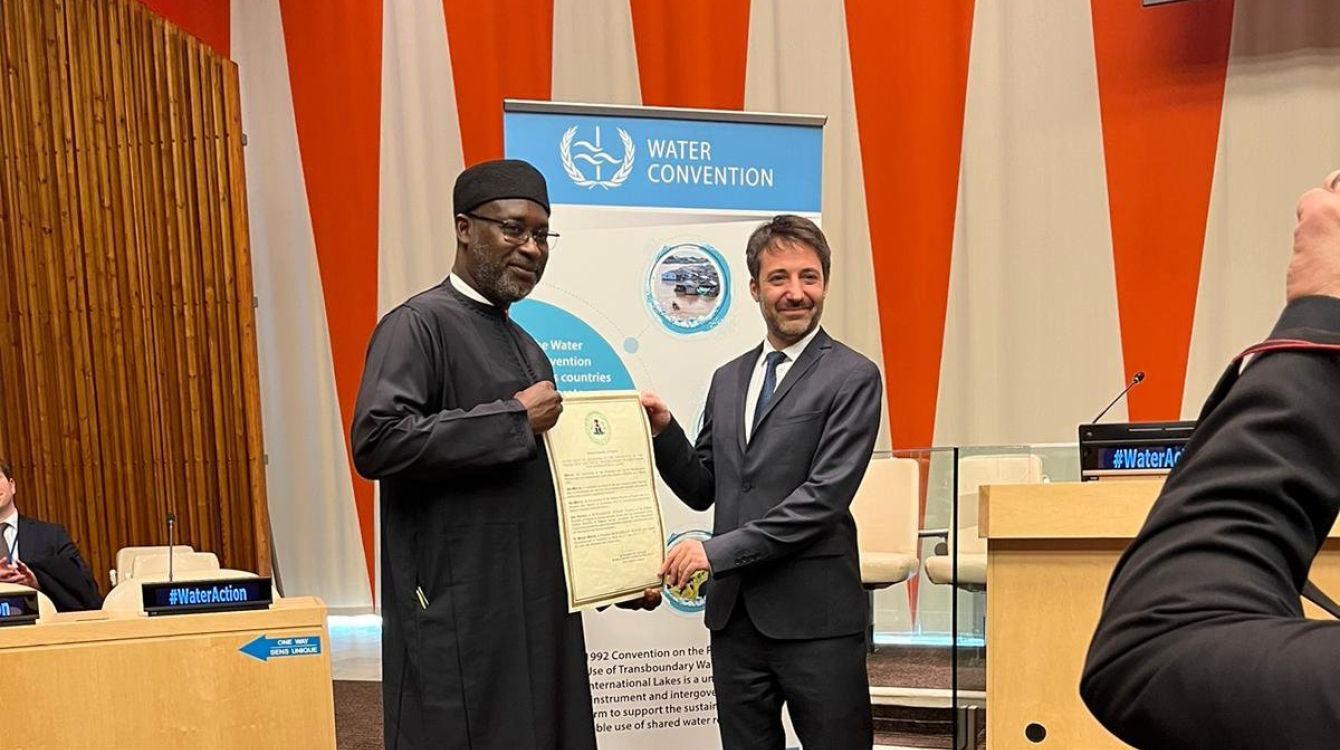Nigeria has taken a crucial step towards collaborative water action by formally joining the Convention on the Protection and Use of Transboundary Watercourses and International Lakes as the world’s leaders convene in New York for the historic UN Water Conference (known as the UN Water Convention).
Along with each of its neighbouring nations, Nigeria shares at least one transboundary water body, making collaboration an essential component of the transformational action required to address complicated water concerns.
Nigeria’s Federal Minister of Water Resources, Engr. At a ceremony on the Conference’s first day, Engr. According to Suleiman H. Adamu, “as water and climate change know no borders, transboundary cooperation concerning climate change adaptation is necessary to prevent the possible negative effects of unilateral adaptation measures and enable the sharing of the costs and benefits of such collaboration.”
Read also: Technip Energies Projects Optimise Namibia’s Energy Mix
He highlighted that “many transboundary basins that will be most severely affected by water scarcity and related climate change impacts are also, in parallel, impacted by political tensions, armed violence and internal water mismanagement, thus necessitating urgent efforts to build trust and strengthen cooperation on shared water issues.”
The Minister stated that Nigeria had ratified the Water Convention as a means of supporting the Niger Basin Authority and Lake Chad Basin Commission’s efforts to improve the country’s current transboundary obligations.
“I am pleased to announce to you that the Federal Republic of Nigeria under the leadership of His Excellency, President Muhammadu Buhari has acceded to the Water Convention as an instrument to help strengthen our existing Transboundary commitments under the auspices of the Niger Basin Authority and the Lake Chad Basin Commission.”
Nigeria is the seventh African country to join the Convention since 2018 and was welcomed by UNECE Executive Secretary Olga Algayerova and Convention Parties (following Chad, Senegal, Guinea-Bissau, Ghana, Togo and Cameroon). The great impetus for water cooperation on the continent and throughout the world is further strengthened by its admission. The UN Water Convention is being ratified by more than 20 nations, including about 15 in Africa, where more than 90% of water resources are transboundary.
The self-acclaimed Giant of Africa’s accession may encourage even more nations to join the Convention and reap its benefits through strengthened joint management of shared water resources. Nigeria has the largest economy, and the most people (over 213 million) and is located in important shared basins like Lake Chad and the River Niger.
Impact Of The Lake Chad Basin
The Lake Chad Basin, which makes up about 8% of all of Africa’s geographical area, is the continent’s biggest interior drainage basin. Algeria, Cameroon, Niger, Nigeria, the Central African Republic, Chad, and Sudan are all included in the basin’s territory. Almost 20% of Nigeria is drained by the basin. Damming, excessive extraction, climate change, and drought are all factors in the lake’s fast depletion, which has resulted in a 90% reduction in size over the past 60 years. Significant problems with unemployment and insecurity have resulted as a result in the area.
Almost 80% of the 100 million people who live in the Niger river basin, which spans Algeria, Benin, Burkina Faso, Cameroon, Cote d’Ivoire, Guinea, Mali, Niger, Nigeria, and Chad, are also residents of Nigeria.
About The UN Water Convention
The Water Convention is a distinctive and well-liked intergovernmental legal system, and UNECE provides secretariat support. It requires Parties to utilise shared waters in a fair and equitable manner, to avoid, regulate, and decrease detrimental impacts on water quality and quantity across borders, and to guarantee their sustainable management via cooperation. Parties sharing a transboundary waterway are required to work together by signing particular agreements and creating cooperative organisations.
